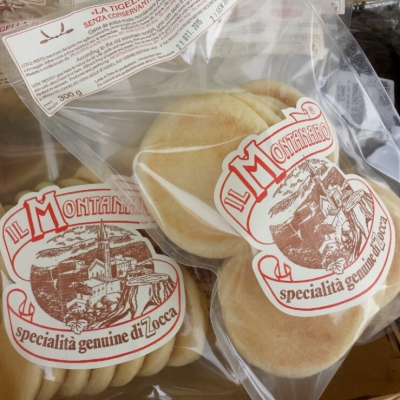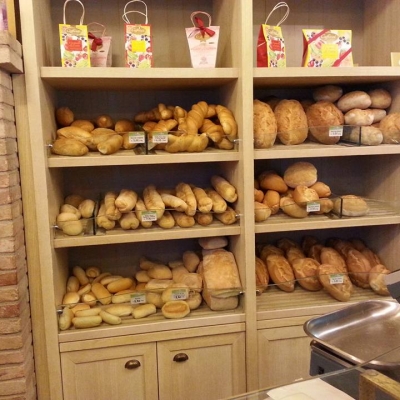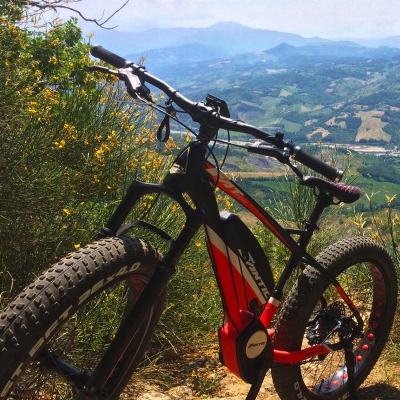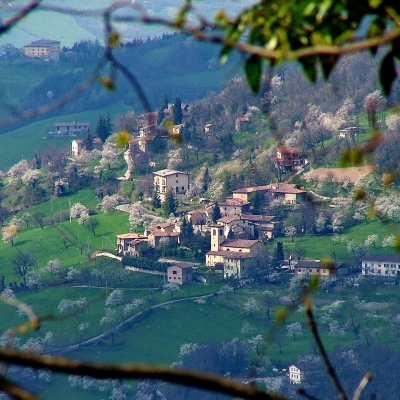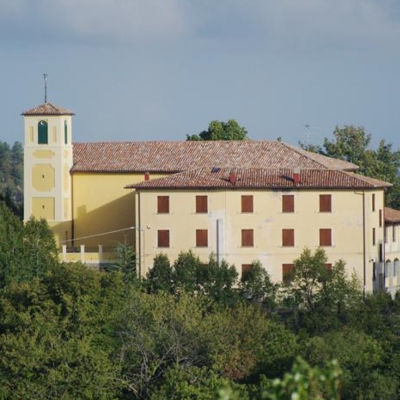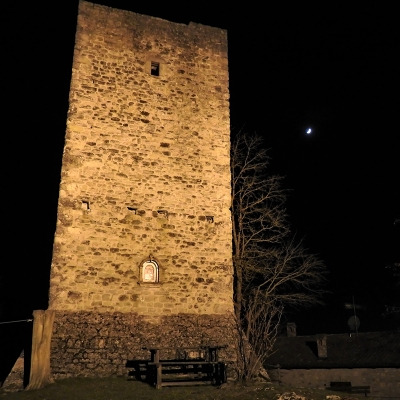Sasso di Sant'Andrea and Bosco delle Tane
Un affioramento di roccia domina il borgo di Montecorone
Sasso di Sant’Andrea
Sasso di Sant’Andrea is a large outcrop of arenaceous-calcareous rock or sedimentary origin, deposited in sea basins from the upper Oligocene (around 25 million years ago), modelled by meteoric agents that have shaped its appearance, degrading the poorly cemented walls of the rock. At the base of the escarpment, a fracture facilitated the erosion by the Fosso Livia (where the rare river crayfish is present), which visually isolated this arenaceous outcrop.
From the top of the Sasso, a wide panorama that embraces the vast expanse of the Po Valley in the north and a closer glimpse of the valley of Montecorone in the south can be enjoyed. Because of the particular microclimate due to the peculiar geomorphological nature of the area, alongside the downy oak woods, a typical hill oak, species such as beech and arboreal heather, typical of high mountains and Mediterranean scrub can be found. There are also many species that are protected by Regional Law: among them are different types of orchids and lilies. Worthy of note is the presence of a specimen of Quercus crenata (cork oak).
Like the nearby spires of the Sassi di Roccamalatina, it provides environments suitable for the presence of birds of prey: the rocky environment specifically offers shelter and protection to the nesting of different hawk species. Nocturnal birds of prey, woodpeckers and different passerines nest in the woods surrounding the Sasso. Mammals include deer, wild boar, roe deer, badgers and porcupines. It can be reached on foot from the dirt road that branches off about 200 metres east of Montecorone.
Bosco delle Tane
It is one of the most fascinating places in the area. This is the name of the area located northwest of Zocca, behind Monte Roppio, between the village of Zocchetta to the east and the village of Montecorone to the north. In the wooded area consisting mainly of chestnuts, there are sandstone rocks that have allowed the formation of modestly-sized caves. Popular imagination gave them fantastic names such as "La Tana della Celeste", "delle Felci Pendenti" or "del Gatto Mammone". Water has also dug out fascinating forges. At the foot of the Bosco delle Tane there is one of the most interesting sources of sulphur waters of the Modenese Apennines (“Acqua di Montecorone”). The fauna and woodland vegetation are typical of this Apennine area, while the undergrowth is rich in typical essences of the humid environments.
